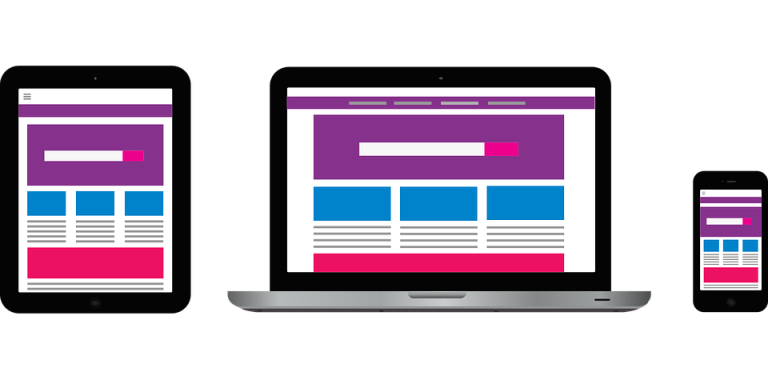Africa’s students Will learn Computer Programming In New Way : It is difficult for Computer Science students at most colleges in Africa to hone and build up their programming skills. They can program, yet access to desktop or PCs be an issue. I encountered this direct while showing programming at a Kenyan college.

Most African colleges have open computer labs, yet these have a tendency to be utilized to educate different classes, subsequently restricting students’ entrance. Numerous foundations may likewise have not very many computers for an extensive number of students. This implies students may need to get to computers outside the classroom keeping in mind the end goal to work on programming. However, a great many people in creating nations don’t possess computers at home.
Restricted access to PCs disturbs the learning troubles looked by programming students. This is particularly evident in light of the fact that programming is best learnt through training. Nonetheless, most students possess cell phones. Mobile phones are the most broadly utilized gadgets among students in creating nations – and, in fact, among Africans all the more by and large.

I thusly set out to build up an answer that would empower students to pick up programming utilizing cell phones. The greatest test was transforming cell phones into utilitarian programming conditions. All things considered, they aren’t planned because of programming. They have little screens and little keypads that obstruct their utilization as programming stages.
Also read this :- Some Reasons Why Everyone Should Learn Computer Programming
So I planned what I called framework – or supporting – procedures that consider the powerful development of projects on cell phones utilizing the Java dialect. These methods can likewise address new students’ needs. The outcomes, taken from my work with 182 students at four colleges in South Africa and Kenya, are empowering.

Procedures for cell phones
The framework strategies I outlined can be utilized on Android stages. They are particularly gone for students learning Object Oriented Programming utilizing Java.
The innovation works by offering three kinds of framework strategies:
Programmed platform, which are supporting strategies naturally introduced on the interface. These incorporate directions on which catches to squeeze, blunder prompts and proposals to see a case while taking a shot at a program. These platform strategies blur away as the understudy gets more acquainted with the application.
Static platform, which includes supporting strategies that never blur away. I included two such methods. One displays the format of a Java program on the primary interface, so the understudy dependably has a visual portrayal before connecting with the program. This procedure is said especially to help another understudy’s learning. The second static platform method includes making the program one section at any given moment, breaking it into littler parts. This is a viable method to help the making of a program on little screen gadgets like cell phones.
Client started framework, which are supporting systems that an understudy can actuate. Illustrations incorporate clues, cases and instructional exercises.
I tried these strategies on the students while they built Java programs on cell phones. Their input was to a great extent positive and proposed that framework strategies particularly intended for cell phones and in view of students’ needs could bolster the learning of programming utilizing a cell phone.
Discoveries and difficulties
Desktop programming situations are intricate interfaces. Expansive screens make it feasible for students to be presented to a lot of data in a single sitting. Vast screens additionally imply that students can be given help, in one place, without leaving the interface. Giving this usefulness and support in one interface doesn’t function admirably on little screens.
Be that as it may, my examination recommends that little screens have a few favorable circumstances. Students revealed to me that the more basic interface on a little screen helped them to concentrate on the job needing to be done. When they needed to make a program slowly and carefully, they didn’t need to get a handle on a gigantic measure of data at the same time. This may help their learning over the long haul.

Unquestionably, the investigation wasn’t great. The framework I created was just for Android stages, which avoids clients from different stages, for example, Windows and iOS. And keeping in mind that cell phones are much more typical among students than private desktop or PCs, are a few students who don’t have and can’t manage the cost of even these gadgets.
My examination isn’t finished yet. My subsequent stages will consider these issues. For instance, the methods I outlined will be tried on other programming dialects –, for example, C++ – and on other versatile stages. I am likewise quick to examine the outline of such framework for tablets which are ending up more typical among African college students.
Subsequent stages
The examination I’ve depicted here identifies with my PhD, which I was granted at the University of Cape Town in December 2015. From that point forward some of my companions have proposed different regions to investigate and make strides. From 2017 my programming students at Kenya Methodist University will utilize the model I tried in a longitudinal report. None of them have ever utilized a cell phone to program, so this will be another experience.
For years to come, African colleges and different foundations offering programming subjects will keep on struggling with assets. For whatever length of time that this circumstance perseveres and students’ entrance to cell phones and tablets develops, the systems I’m creating could offer a savvy arrangement that enables the mainland to continue delivering young programmers.




